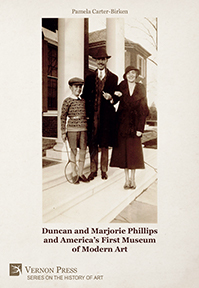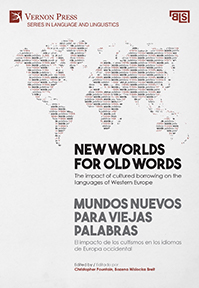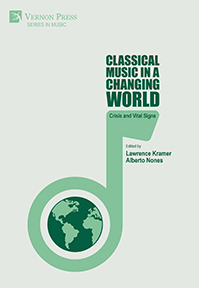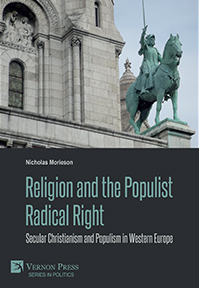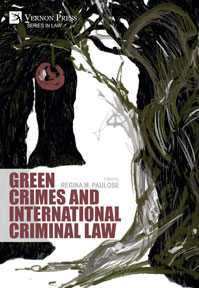Search
Browse
by Publication status
by Subject
Anthropology (26) Art (171) Business and Finance (38) Cognitive Science and Psychology (63) Communication and Journalism (51) Economics (116) Education (71) History (169) Human Geography (23) Interdisciplinary (43) Language and Linguistics (178) Law (16) Music Studies (18) Philosophy (222) Political Science and International Relations (127) Sociology (404) Statistics and Quantitative Methods (21)by Series
Series in Literary Studies (62) Series in Philosophy (57) Series in Education (49) Series in Sociology (42) Series in World History (31) Series in Politics (30) Bridging Languages and Scholarship (26) Series in Language and Linguistics (25) Cognitive Science and Psychology (20) Series in Philosophy of Religion (20) Series in American History (19) Series in Art (19) Critical Perspectives on Social Science (16) Series in Cinema and Culture (16) Curating and Interpreting Culture (15) Series on the History of Art (14) Series in Anthropology (13) Series in Critical Media Studies (13) Economics (13) Series in Business and Finance (12) Series in Music (12) Series in Performing Arts (9) Philosophy of Personalism (8) Series in Communication (8) Series in Law (8) Series in Economic Methodology (7) Series on Climate Change and Society (7) Classics in Economics (6) Series in Economic Development (6) Women's Studies (6) Philosophy of Forgiveness (5) Series in Built Environment (5) Series in Economic History (5) Series in Philosophy of Science (4) Series in Social Equality and Justice (4) Series on the History of Science (4) Serie en Sociología (3) Series in Contemporary History (3) Series in Creative Writing Studies (3) Series in Design (3) The Interdisciplinary Built Environment (3) Series in Heritage Studies (2) Series in Innovation Studies (2) Serie en Ciencias Políticas (1) Serie en Comunicación y Medios (1) Serie en Entorno Construido (1) Serie en Estudios Culturales (1) Serie En Estudios Literarios (1) Serie en Filosofía (1) Serie en Música (1) Series in Classical Studies (1) Series in Economics of Technological Change (1) Series in Philosophy of Race (1) Series in Urban Studies (1)by Language
English Spanishby Author
Duncan and Marjorie Phillips and America’s First Museum of Modern Art
March 2021 / ISBN: 978-1-64889-212-7Availability: In stock
176pp. [Color] ¦ $75 £55 €62
He was born to privilege and sought the world of art. She lived at the center of that world—a working artist encouraged by the famous artists in her extended family. Together, Duncan Phillips and Marjorie Acker Phillips founded The Phillips Collection in Washington, D.C., the first museum of modern art in America. It opened in the grand Phillips family home in 1921, eight years before New York City’s Museum of Modern Art and only a few weeks after they wed. Duncan took the lead in developing the collection and showcasing it. Marjorie kept space and time to paint. Duncan considered Marjorie a partner in the museum even though she was not directly involved in all purchasing and presentation decisions. To him, her influence was omnipresent. Although Duncan’s writings on artists and art history were widely published, he chose not to provide much instruction for visitors to the museum. Instead, he combined signature methods of displaying art which live on at The Phillips Collection. Phillips had viewers in mind when he hung American art with European art—or art of the past with modern art, and he frequently rearranged works to stimulate fresh encounters. With unfettered access to archival material, author Pamela Carter-Birken argues that The Phillips Collection’s relevancy comes from Duncan Phillips’s commitment to providing optimal conditions for personal exploration of art. In-depth collecting of certain artists was one of Phillips’s methods of encouraging independent thinking in viewers. Paintings by Pierre Bonnard, Arthur Dove, Georgia O’Keeffe, John Marin, Jacob Lawrence, and Mark Rothko provide testament to the power of America’s first museum of modern art.
New worlds for old words / Mundos nuevos para viejas palabras
The impact of cultured borrowing on the languages of Western Europe / El impacto de los cultismos en los idiomas de Europa occidental
Edited by
Christopher Pountain, Queen Mary University of London
and Bozena Wislocka Breit, Queen Mary University of London
Availability: In stock
305pp. ¦ $61 £46 €52
"New worlds for old words / Mundos nuevos para viejas palabras" is a collection of chapters on the theme of lexical borrowing in the languages of Western Europe with particular focus on borrowing from Latin, or from Greek via Latin, into Spanish. Such cultured, or “learnèd” borrowing—as it has sometimes been designated—, is an especially intriguing feature of the Romance languages, since they also derive from Latin. It is also of particular interest to historical linguists since it is an example of what has been called “change from above”: innovation first evidenced in the written usage of the culturally élite which then diffuses into more general acceptance, with the result that some cultured borrowings (e.g. problem/problema, social, program(me)/programa) are now amongst the most common words in the modern languages. Despite their enormous influence on such major languages as English, Spanish, Portuguese, French, and Italian, the mechanisms by which these borrowings become established in their host languages have to date been relatively little studied. This book seeks to make a contribution to this question and revive interest in what has become a neglected area of historical linguistics and contains contributions both by internationally respected scholars and new researchers in the field. This bilingual collection will appeal to academics, scholars, and postgraduate students of Hispanic Studies, Cultural History, and particularly Historical Linguistics and Romance Linguistics. "New worlds for old words / Mundos nuevos para viejas palabras" es una colección sobre los préstamos léxicos en los idiomas de Europa occidental, centrándose sobre todo en los préstamos del latín, o del griego a través del latín, al español. Los cultismos son un rasgo especialmente interesante de las lenguas romances, ya que ellos mismos proceden del latín. También es de gran interés para la lingüística histórica dado que es un ejemplo de lo que se conoce como “cambio desde arriba”: cambios atestiguados primero en la lengua escrita de la élite cultural que luego comienza a tener un uso más generalizado, y cuyo resultado es que algunos de estos cultismos (por ejemplo “problema”, “social”, “programa”) se encuentran entre las palabras más comunes en los idiomas modernos. A pesar de su enorme influencia en lenguas tan importantes como el inglés, el español, el portugués, el francés o el italiano, los mecanismos por los que estos préstamos se establecen en los idiomas de acogida se han estudiado relativamente poco hasta ahora. Este volumen es una contribución a esta cuestión y su objetivo es reavivar el interés en lo que se ha convertido en un área olvidada de la lingüística diacrónica. Se incluyen capítulos de académicos conocidos internacionalmente y de investigadores noveles. Esta colección bilingüe será de gran utilidad para académicos, investigadores y alumnos de posgrado en estudios hispánicos, estudios culturales, y particularmente lingüística histórica y lingüística de las lenguas romances.
Classical Music in a Changing World
Crisis and Vital Signs
Edited by
Lawrence Kramer, Fordham University
and Alberto Nones, Conservatory of Music of Gallarate; Associazione Europea di Musica e Comunicazione (AEMC), Italy
Availability: In stock
116pp. ¦ $40 £30 €34
In recent years classical music has become a test case for debates over the future of culture. As times have changed, the value traditionally placed on this music has been challenged on social rather than aesthetic grounds. Lovers of classical music have been asked how its privileged history can be reconciled with growing demands for social justice and social inclusiveness. They have been asked how the music’s standing as one of the great accomplishments of the West can be reconciled with the many injustices on which those accomplishments in part depended. How can the future of classical music escape the darker shadows of its past? ‘Classical Music in a Changing World: Crisis and Vital Signs’ addresses the crisis provoked by such questions in two complementary ways. Several of the chapters show how the classical music world is already grappling with the crisis, and finding vital signs beyond the borders of the music’s traditional European strongholds: in Turkey from Ottoman times to the present, in Colombia, and in a Black American film. Other chapters identify areas that still need improvement, especially on behalf of female and LGBTQ+ musicians, and suggest how advances can be made both on concert stages and in schools. This volume, which opens with an introduction by Alberto Nones that contextualizes the book and outlines the main arguments of its chapters, contains an essay by Lawrence Kramer that examines the place of classical music in the history of consciousness—a history now changing rapidly—and concludes with a Postscript written by the two editors. The writing in this volume will be accessible to a wide audience, including scholars and students, professionals and amateurs, performers and listeners. Teachers will find it a source of lively classroom debate, and scholars a source of learning outside the usual arenas. The book’s “vital signs” include the accompanying audio tracks (available for download at: https://vernonpress. com/book/1281), which feature vibrant music-making from a diverse range of performers and composers.
Religion and the Populist Radical Right: Secular Christianism and Populism in Western Europe
Nicholas Morieson, Australian Catholic University
Availability: In stock
227pp. ¦ $61 £46 €52
In Western Europe, populist radical right parties are calling for a return to Christian or Judeo-Christian values and identity. The growing electoral success of many of these parties may suggest that, after decades of secularisation, Western Europeans are returning to religion. Yet these parties do not tell their supporters to go to church, believe in God, or practise traditional Christian values. Instead, they claim that their respective national identities and cultures are the product of a Christian or Judeo-Christian tradition which either encompasses—or has produced—secular modernity. This book poses the question: if Western European politics is secular, why has religious identity become a core element of populist radical right discourse? To answer this question, Morieson examines the discursive use of religion by two of the most powerful and influential populist radical right parties: The French National Front and the Dutch Party for Freedom. Based on this examination, he argues that the populist radical right has capitalised on a cultural shift engendered by the increasing visibility of Islam in Europe. Western Europeans’ encounter with Islam has revealed the non-universal nature of Western European secularism to Europeans, and demonstrated the secularisation of Christianity into Western European ‘culture.’ This, in turn, has allowed secular French and Dutch citizens to identify themselves—as well as their nation and, ultimately, Western civilisation—as Christian or Judeo-Christian. Seizing on this cultural shift, the author contends that the National Front and Party for Freedom have built successful and similar brands of reactionary politics based on the notion that contemporary secularism is a product of Europe’s Christian heritage and values, and that therefore Muslim immigration is an existential threat to the core values of European politics, including the differentiation of politics and religion, and of church and state. ‘Religion and the Populist Radical Right: Secular Christianism and Populism in Western Europe’ will be of interest to scholars and researchers working on the intersections of Political Science, Sociology, and Religion. It will also appeal to the general audience interested in the relationship between populism in Western Europe and religious identity as it is written in an accessible style.
Green Crimes and International Criminal Law
Edited by
Regina M. Paulose
Availability: In stock
364pp. ¦ $66 £49 €56
‘Green Crimes and International Criminal Law’ examines crimes against the environment, which impact not only humans, but also wildlife and ecosystems more generally. A significant point of discussion in the volume is whether green crimes can fit effectively into existing international criminal law frameworks or not. Chapter authors explore these crimes from both a definitional and theoretical perspective and in various contexts in different parts of the world, questioning whether these violations have led to or are violations of international criminal law. While the recognition of green crimes in the international criminal law community has been slow, it has increasingly gained widespread attention. This volume acknowledges the growing interest and seeks to promote debate among academics and professionals working on the subject. The aim of these texts is to encourage meaningful action around green crimes within the international criminal law community so that environmental justice can become established. The collection will be of particular interest to practicing attorneys and academics studying international criminal law, especially those keen on investigating how green crimes can be incorporated into the specific canon of international law.

